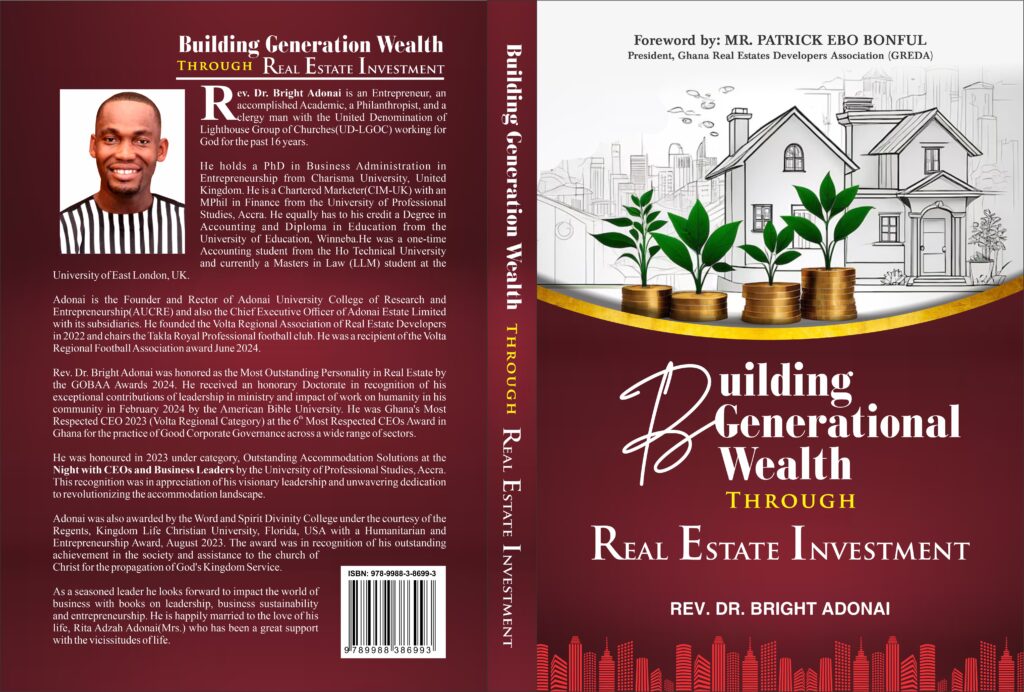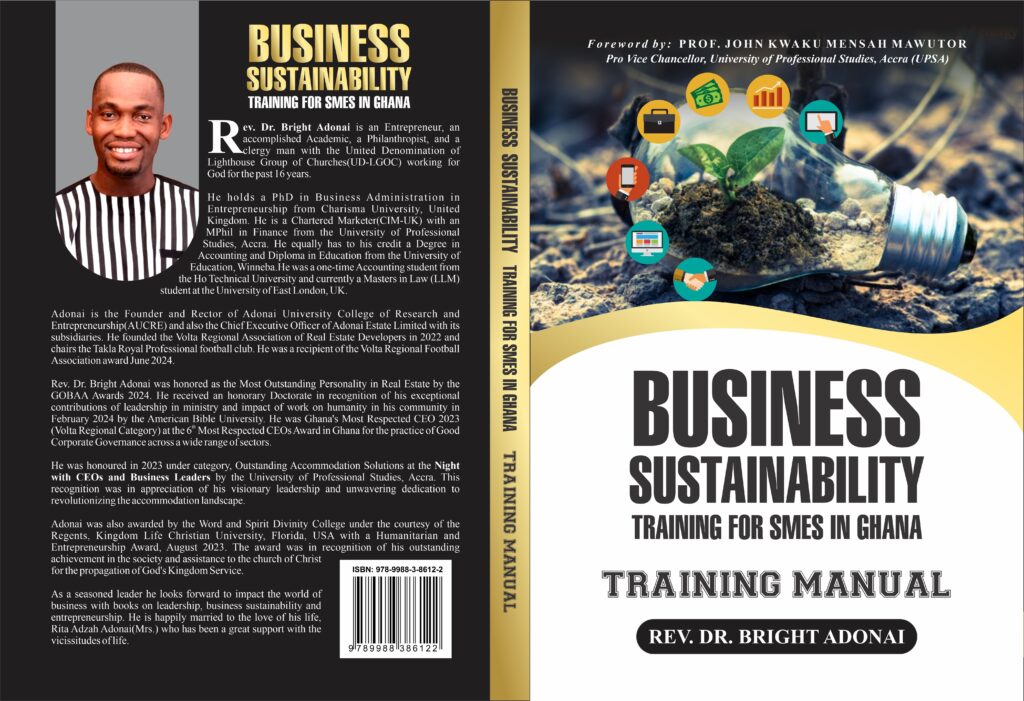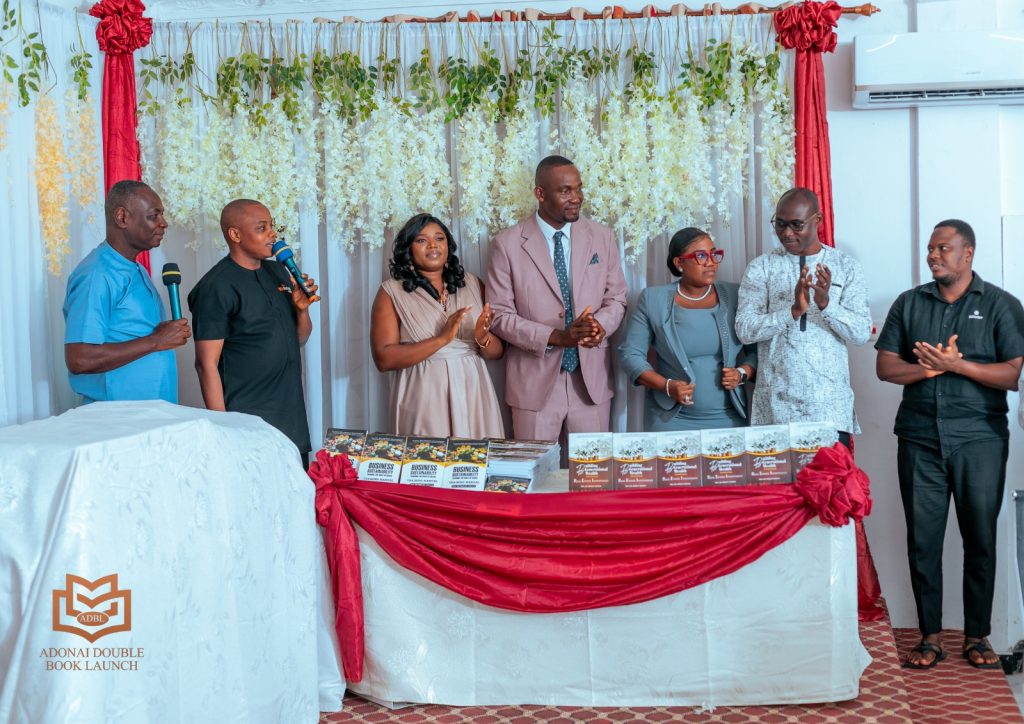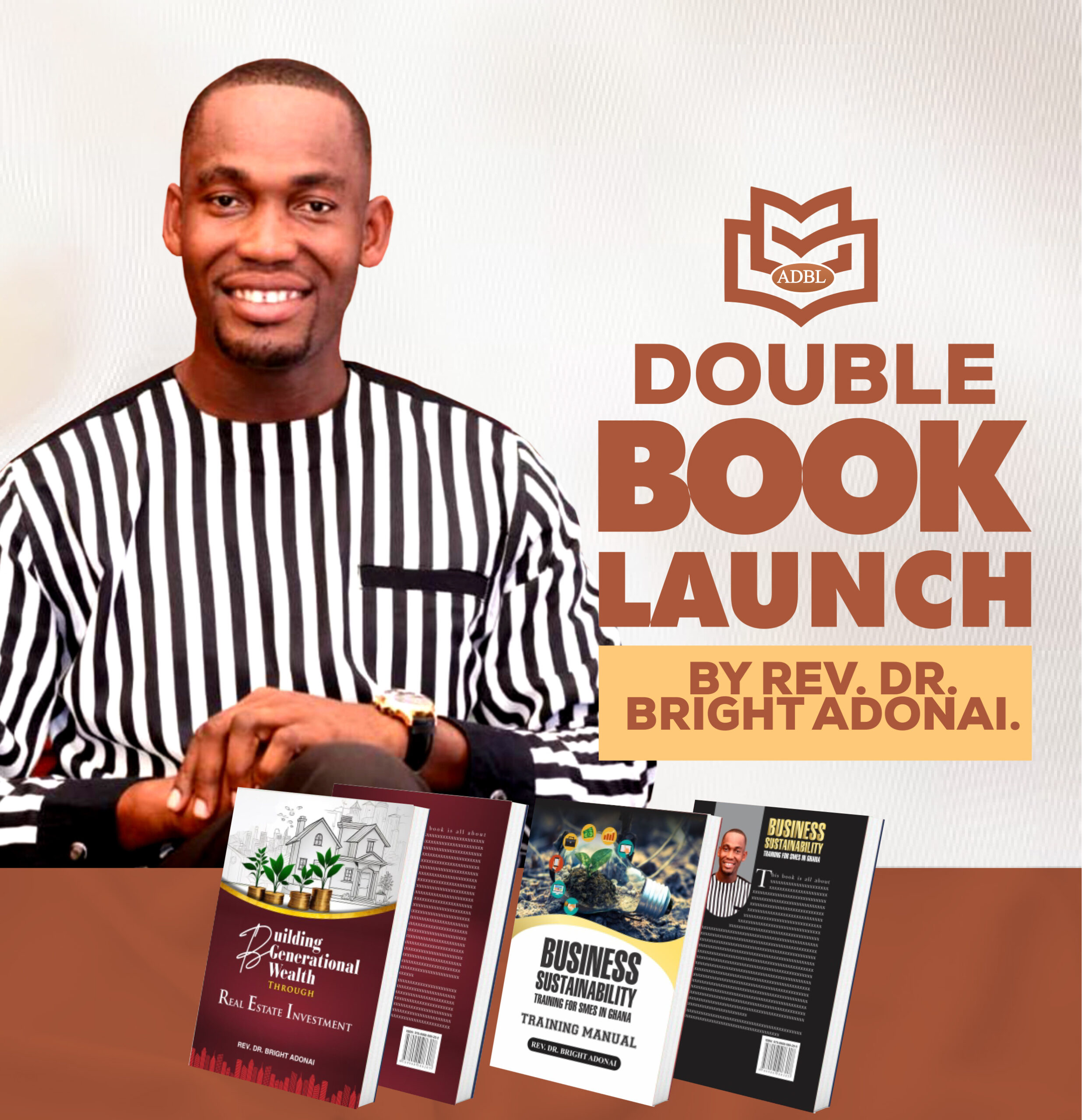By: Samuel Akumatey
On August 31, two transformational books have been unveiled at a brief ceremony in Ho to assist players in the built industry and those anticipating venturing into small and medium scale enterprises. The “Business Sustainability: Training Manual for SME in Ghana,” a training manual and “Building Generational Wealth through Real Estate Investment,” was authored by Reverend Dr. Bright Adonai, an award-winning entrepreneur, real estate developer, who also established the Adonai University College Research and Entrepreneurship (AUCRE).
The 191-page training manual has eight chapters, which explore sustainable business models, and a chapter has been dedicated to financial challenges facing SMEs and seeks to expose the widening financial exclusion faced by these enterprises. It promotes knowledge of fiscal planning, carries needed knowledge on legal compliance in the minor enterprise sector, and provides a guide to effective monitoring and evaluation.


The “Business Sustainability: Training Manual for SME in Ghana,” a training manual and “Building Generational Wealth through Real Estate Investment,” was authored by Reverend Dr. Bright Adonai, an award-winning entrepreneur, real estate developer, who also established the Adonai University College Research and Entrepreneurship (AUCRE).
The publication on wealth building in real estate in also 19 chapters in 260 pages, contains knowledge in-depth on the landed property business in entirety, while placing focus on multi-generational enterprise survival. The paperback tells us to navigate market trends, tax, social and environmental regimes. It further provides guidance to aligning entrepreneurial endeavours within the built industry with the Sustainable Development Goals.
Mr. Freeman Gborse, a lecturer of banking and finance at the University of Professional Studies (UPSA), Accra, who reviewed the book at the launch said, “this book provides a never before found answer to the issue of business sustainability in Ghana and will help understand the Ghanaian concept of business sustainability.” “The book is expected to animate present and future generations to navigate the fineline of wealth creation and direct pathways of successful SMEs.”
Professor Kwaku Mensah Mawutor, the Pro Vice Chancellor of UPSA, in a forward to the books, who also delivered the keynote address commended Rev. Adonai for excelling to produce two volumes in a stretch, and for continuous commitment to impacting the entrepreneurial landscape.
He stated the need to reorient the entrepreneurial base of the country to promote innovation and grow the local economy, and said the author deserved praise dwelling on the matter in the publications.
Mr Patrick Ebo Bonful, the President of the Ghana Real Estate Developers Association (GREDA), said there was lack of priority for the housing sector, and was sure the publications would enhance the quest to develop the crucial arena.

The Author explained that both volumes should go a long way to enhance the growth and longevity of SMEs in the sub-region. “These books are life-long step-by-step business and wealth sustainability models suitable for the Ghanaian and African markets with the uniqueness of authority and credibility, depth and detail, scholarly language, and significant contribution to academia and the real estate industry. “We all know that access to capital for entrepreneurs is a Ghanaian challenge and many SMEs collapse within their first ten years of operation,” he said.
Rev. Adonai shared the journey to the realisation of the volumes, highlighting the depth of personal experience mixed into the literature. “My major challenge was finding time to write. It was demanding combining my multiple businesses, and my family with writing two books concurrently. On the days that I felt most challenged, I had to motivate myself with the intent of writing these books.
Rev. Adonai said the Training Manual expounded distinct Capital Generation and Appreciation models suitable for an average youth, who dared to venture into entrepreneurship and gave more insight into the exclusive and effective product, external environment, and capital and people management as the most business sustainable tool.
“The other book, Building Generational Wealth through Real Estate Investment, illustrates how easily an individual can identify opportunities in the Real Estate industry, capitalise on them, and systematically build that portfolio by taking advantage of the 21st-century trends and predictions to generate wealth for our generations”.
In attendance were corporate heads of various businesses and enterprises owned by the entrepreneur, and traditional leaders, and members of the political class.
Source: GNA


